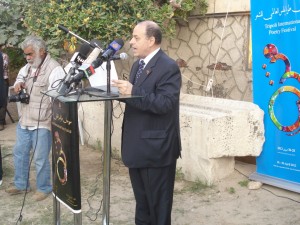By George Grant.
Tripoli, 31 May:
The Ministry of Culture and Civil Society is to enact a series of new rules designed to . . .[restrict]regulate the relationship between foreign and domestic Non-Governmental Organisations (NGOs) in Libya.
The regulations are due to take effect from 1 June 2012.

Once the new rules take effect, any international organisation wishing to work inside Libya will be required to register with the government’s civil society centres in either Tripoli or Benghazi. Amongst other stipulations, these bodies will be required to present the authorities with a complete record of their current and planned activities inside Libya, as well as information about board members and contact details for all company staff. The financial and technical resources of all such organisations will also need to be disclosed.
New restrictions will also be placed on these NGOs. They will no longer be able to operate independently inside Libya, but must instead commit to working with one or more local civil society organisation.
Moreover, international NGOs will be banned from providing cash donations to local NGOs, and other financial support will have to be in accordance with the new regulations. In effect, international NGOs will be restricted to supporting local NGOs with agreed-upon projects.
There is some concern that these stipulations will deter smaller foreign organisations, in particular those without a permanent presence inside the country, from engaging in Libya and supporting local NGOs. Collectively, the administrative hurdles required to register with the government are considerable.
The regulations also stipulate that no international organisation will be permitted to operate in Libya if it originates from, or is headquartered in, a country that Libya does not have relations with or with whom Libya is in a state of war. In effect, no Israeli organisation will be permitted to operate in the country.
Contrary to some recent reports that the regulations would seek to restrict freedom of movement by international organisations inside Libya, this does not appear to be the case. According to the documentation seen by the Libya Herald, registered organisations will be given “the freedom to move and operate and meet with local organisations, and cooperate to provide training and technical assistance that meets the local organisation goals and objectives allowed by the rules applied.”
However, in a move that may generate some backlash from local groups, the regulations will also seek to centralise domestic civil society operations inside the country. Not only will all local organisations need to register with and be approved by the government, they must also apply to the government for budgetary support. It is unclear if this means that organisations will be dependent on the central government for funding, or if they must merely apply to the government if they wish for its support. Any local NGO that does receive financial assistance from the government will be obliged to announce that fact over a period of three days, in three local newspapers assigned by the authorities.
Both the United Nations and its agencies, as well the International Committee of the Red Cross (ICRC), will be exempt from the regulations.
[/restrict]







